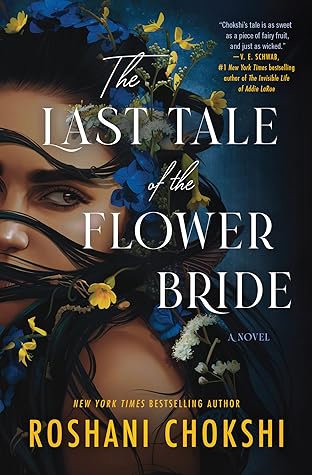More on this book
Community
Kindle Notes & Highlights
You warned me that knowing your secret would destroy us. At first, it sat in our marriage like a blue-lipped ghost, hardly noticeable until a trick of the light drew it into focus. But you could always tell the days when it gnawed at my thoughts. You tried to comfort me. You stroked my face and curled my fingers to your heart. You said: “If you pry, you’ll destroy our marriage.” But oh, my love, you lied.
Some individuals are like portals, the knowing of them makes the world a far vaster place. In Indigo’s presence my world widened. Brightened. There was something about her that made the eye linger. It wasn’t her beauty; it was the way she seemed superimposed on the room. A mirage that might vanish if I looked away.
In fairy tales, a kiss marks a threshold—between the state of being cursed or cured lies a kiss. But not all kisses cure; some kill. Thresholds go both ways, after all.
“I’ve been trying to find a way to live in this world. Barring that, I was looking for a way to leave it.”
She was a phantasm to me, proof of the impossible and thus a talisman against the absence that had haunted my adult life.
I have since learned that marriage is nothing more than a spell strengthened by daily ritual. The spell requires libations: mundane musings hoarded and pored over, the repetition of small dismays, the knowledge of how your spouse takes their coffee. Marriage asks for that crust of time you were selfishly saving for yourself. Marriage demands blood, for it says: Here is what is inside me, and I tithe it to you.
Sometimes, fairy tales are little more than a litany detailing acts of devotion. Sisters knit shirts of stinging thistles for brothers turned to swans. Wives wear out iron shoes. Princes scale mountains of glass. I supposed it was a matter of will. What would you do to be happy? To be loved?
Without the terror that came from imagining a life without your beloved, there was no urgency in loving them.
“You know,” said Tati, “change is the great blessing of mortals. Creatures of the Otherworld are always bound by something—moonlight, iron, running water. But the only thing that can act on humans is time. We are not lovely and static. We are ever-changing, vast as seasons. We are meant to change. Do you understand, Azure?”
This is why fairy tales are dangerous: their words sneak into your veins and travel into the chambers of your heart, where they whisper of your exceptionalism. They say: Ah, but remember the boy who walked into the woods and came out a king? Oh, but what of the girl who was kicked and slept in ashes? Remember the man who was only kind and so life bent around the shape of his smile? But we are not exceptional.
In the end, a fairy tale is nothing more than a sense of hope. Hope lures and tricks. It tempts with shining thrones, exquisite nectars, and loving arms. It whispers to us that we are extraordinary. Exempt. Thus lured, we follow its path. Sometimes we are led to riches. Other times, we are led astray. But this hope never hides its shape, and for its honesty we reach for it and pull its sweet and stinking furs up to our chins, for to live without it means living without magic.
I have never before considered what it means to have a good marriage. I thought it was finding intriguing and attractive company. But maybe it is about finding someone whose heart is like a mirror, whose love can make you stand the sight of yourself.
Long ago, there lived a king and queen in a house of dreams, and there they quietly tended to their ghosts and knew all the shadows by name. The house was vast. Sometimes the king or queen got lost. When that happened, they would hold each other’s hands and say— It was once upon a time. That was all it was. A prayer and a promise in one. A single page composed of the past. Eventually, what was once softened to a palimpsest of lost words and snowfall, starlings and sparrow wings and blue ink. In this way, the king and queen crafted a tale of their own. In the end, they lived.


